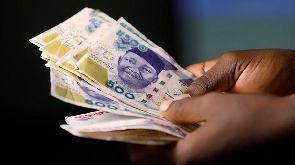The Naira slumped against the dominant foreign currencies despite the fact that the United States (US) dollar volume traded fell by about 47% over the five trading day’s sessions in the organised foreign exchange market.
The Nigerian naira continued to face pressures emanating from the surge in foreign currency demand despite the US dollar shortage in the economy. This has been affecting the FX supply.
The exchange rate depreciated to N756.91, losing about 4.8% last week at the Investors and Exporters window, according to data from the FMDQ Platform. In a market note, analysts at Afrinvest Limited notified investors that the activity level at the official window fell significantly, dropping by 46.8% in the week to $382.6 million.
FX analysts said trades were consummated within the N720.00 – N807.15 band. At the parallel market, the naira depreciated by 2.69% week-on-week to N955. This depreciation was driven by the continued search for the dollar by forex users in alternative forex markets, given the limited supply from the apex bank.
Amidst sustained foreign currency shortage challenge, activities level at the Investors and Exporters FX window dropped significantly on tepid foreign currency inflows into the economy. #Naira Devaluation Deepens Economic Crisis in Nigeria
Foreign portfolio investors in the Nigerian economy have remained unimpressive even after the local currency was devalued in June. The reason put forward by Broadstreet analysts was a lack of US dollar inflows into the market. FX backlog owed to foreign investors is estimated at $10 billion, and global index providers like FTSE Russell, and MSCI Index have plans to downgrade Nigeria Index.
FTSE Russell Board has taken a final decision to yank off the Nigeria Index from the Frontier Index to an unstructured market. In June, the MSCI Index postponed its decision to downgrade Nigeria.
In addition, the country’s weak external reserves curtailed the monetary authority’s ability to support the local currency in the forex market. Nigeria’s FX reserve maintained its descent as gross reserves dropped by $ 32.87 million to close at $ 33.29 billion despite surging global prices of oil in the international market.
Last week, the crude oil market recorded a third consecutive week of bullish rally and prices were spurred by growing demand and supply mismatch and the latest industrial output report.
As a response, crude oil prices, with WTI crude trading at $90.84 per barrel and Brent crude at $93.96 per barrel on Friday. Additionally, the price of Nigerian Bonny Light crude oil closed positively at $98.19 per barrel, up from the previous week’s $94.20 per barrel.
Following a switch to managed float, the CBN’s interventions in the foreign exchange market have played a crucial role in maintaining the stability of the Nigerian naira, even in the face of fluctuating oil prices.
At the FMDQ Securities Exchange FX Futures Contract Market, the naira exhibited weakness against the US dollar across various contract tenors.
Analysts reported that forward rates in US dollar terms appreciated by 2.18%, 2.30%, 2.42%, 2.77%, and 3.39% for the 1-month, 2-month, 3-month, 6-month, and 12-month contract tenors, respectively.
This upward movement in forward rates was a result of increased demand for the US dollar across these various tenors, analysts said. Cordros Capital said in a commentary noted that the narratives in the FX market have remained the same in recent weeks, as FX reform momentum has slowed down.
Business News of Sunday, 17 September 2023
Source: dmarketforces.com













